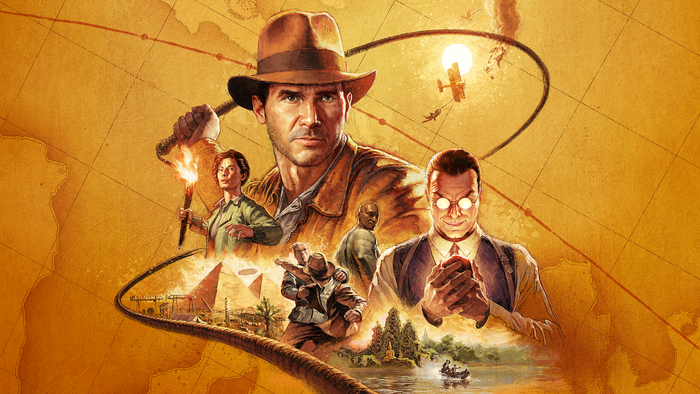Q&A: SOE, Live Gamer Reveal 'Live Gamer Exchange' Service
Sony Online Entertainment has announced an agreement with firm Live Gamer to replace EverQuest II's Station Exchange virtual item selling platform - Gamasutra talks in-depth to SOE's John Smedley about credit card fraud issues, and to Live Gamer's

Live Gamer has announced an agreement with Sony Online Entertainment to incorporate the technology from SOE's Station Exchange platform for the purchase and sale of virtual items used with EverQuest II, forming a new independent service called Live Gamer Exchange. The company recently launched with the aim of creating a publisher supported, secure platform for real-money purchase and sale of virtual goods, joined by a slate of MMO and virtual world operators including Funcom GMBH, Sony Online Entertainment, 10Tacle Studios, Acclaim, GoPets and Ping0 Interactive, all of whom work with Live Gamer to provide the transaction platform to their users. Now, the newly formed Live Gamer Exchange platform will replace SOE's Station Exchange on EverQuest II servers, with the two companies pledging to work together to migrate Station Exchange users to the web-based Live Gamer Exchange service. When Gamasutra spoke to SOE president John Smedley, he says the concept of a publisher-sanctioned trading platform is something his company has embraced since the launch of Station Exchange in 2005. "From our perspective, we believe that a publisher-sanctioned secondary market that has a code of conduct that specifically prohibits farming is going to be a positive thing for our industry," Smedley said. Escalating Farming: A Million Dollar Problem So what does the partnership with Live Gamer mean? According to Smedley, Station Exchange was a big success -- but a clear problem had begun to develop that was getting out of hand. "It's done over $3 million in revenue today, and that's very real, but recently we've seen the fraud rate begin to climb pretty high, because these farmers are becoming professionals." "We believe a company dedicated to fighting the problem and agreeing to a code of conduct will really help things out," he added. "[Live Gamer] can put more resources on this than we can -- it's only a small part of our business, but it's their entire business." Moreover, Smedley believes that 95 percent of game fraud is perpetrated overseas, primarily in the Asian region -- and North American companies are limited in the ways they can seek restitution, further disarming game companies. "The fraud rate is starting to become a very significant issue," he said of the industry at large. "We’re seeing customers facing farmers, and we're seeing, economically, ourselves and other publishers being hurt." It isn't just issues of game balance and gold farming, Smedley says. "We're seeing a lot of stolen credit cards. Say you buy gold from a service in China -- you may not know it's in China, but you give them your credit card and buy gold only once. They use these credit card numbers to set up new accounts in these games. They buy an EverQuest account key, farm for a month, and then charge it back to the stolen credit card." And this isn't just damaging to the consumer. "What happens is that over time, as that rate of chargebacks rises, we start getting fined. We have been fined over a million dollars since June. That's not the chargebacks themselves -- just the chargeback fine. It's brutal; it's the dirty little secret of the industry." Smedley hopes that Live Gamer will gain the support of many publishers and games -- if the industry is protected by a single, secure transaction platform, farmers will run out of places to buy and sell. Convincing The Nonbelievers Live Gamer Exchange will be a proving ground for both companies, he adds. "We're transitioning something we already have service experience in. We’re going to make sure they live up to the codes of conduct. I believe [Live Gamer co-founder and Brash chairman] Mitch Davis and [Live Gamer co-founder and CEO] Andy Schneider are solid -- they have the right intentions, but we have to trust and verify, and make sure they follow up and back it up with actual action. If they do, then it's a win-win." Not all MMO companies support the idea of a publisher-sanctioned transaction platform; companies like Blizzard have indicated they don't feel such a thing belongs in a game. "I respect that; it's a fair point of view," Smedley conceded. "However, the vast majority of people seem to engage in this kind of activity on a pretty frequent basis. What we think is going to happen is, as more and more games are released, this will become part of games, and an accepted part." However, Smedley says that's only part of the issue. "These same companies have very large farming problems themselves," he said of the opposition. "Blizzard did a great job in suing Peons For Hire. That works, because they're a U.S.-based company. That doesn't work, though, if it's in China. They fight it just like we do, but what I would like to see is, over time, if there's a legitimate market for this and there aren't farmers, what does the market look like? The long-term plan is to get publisher acceptance slowly -- and it will take time." So in picking up the torch from Station Exchange, Live Gamer has a burden of proof on its shoulders that could play a significant role in determining the direction of the industry around the issue of virtual item sales. Gamasutra also spoke to Live Gamer co-founder and CEO Andy Schneider to get his perspective. "We’ve been admirers of what SOE has done with Station Exchange and its proactive approach to addressing consumer demand out there for real money transactions of virtual items, and in working with them, we found they developed some unique things, and a very passionate userbase." An Integrated Solution So what does the marriage of their approaches look like? "We've developed our technology from a Wall Street point of view," Schneider says. "Our entire engineering team comes out of the financial services industry. They were focused on in-game accessibility and immersion. In our partnership with Sony, we felt they had interesting things we could integrate into our platform solution to create a best of breed solution." Schneider explains that the new Live Gamer Exchange will let players access the marketplace from within the game or via a web-based tool. "Having two ways for players to access the marketplace is huge value added," Schneider explains. Despite the integration of Station Exchange technology and best practices, Schneider stresses that Live Gamer is operating Live Gamer Exchange independently. "The technology that we've integrated is now part of our platform, it's upgraded independently, and we will be operating both a web client and an in-game client. Our goal is to enable all Live Gamer Exchange-enabled titles with the two different access points so players can find convenience in accessing the marketplace." In fact, Schneider believes that kind of accessibility, coupled with security and standardization, is the future for game marketplaces. Both Live Gamer and Sony Online Entertainment have now forged a partnership based on their projections -- and their hopes -- for the future of this facet of online gaming, and now as Live Gamer Exchange moves forward alongside EverQuest II beginning April 1st, 2008, the real test begins.
About the Author
You May Also Like









